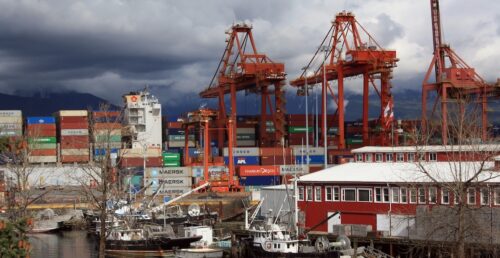
Environmental groups are warning that Canada’s decision to expand a container terminal at the Port of Vancouver could be a «death sentence» for marine life in the area. The expansion, which would double the port’s current size, would have damaging effects on maritime species already on the brink of extinction. The area is a key habitat for the endangered southern resident killer whale and the ailing chinook salmon they rely on for food, as well as dozens of other at-risk species. The Port of Vancouver has offered to mitigate the effects of construction by building 86 hectares of habitat to replace the ones Terminal 2 will destroy as part of the 177 hectares that would be developed. However, environmental groups argue that this is not enough and that the expansion will irrevocably harm the ecosystem.
Canada’s natural resources minister, Jonathan Wilkinson, framed the decision to approve the expansion as a way of preventing future backlog. «More than C$275bn of trade passes through the Vancouver Fraser Port Authority every year. By the early 2030s, our ports are forecast to be approaching capacity, and we will be unable to meet forecasted demand,» he said. The planned expansion would eventually increase the annual capacity by 2.4 million containers. The environment minister, Steven Guilbeault, said that hundreds of legally binding conditions would be put in place to ensure the strict environmental conditions are met and habitats are protected. Among the conditions, noise levels would be kept below a baseline to protect the whales, and infrastructure would be built to allow salmon to pass through.
However, Charlotte Dawe, a conservation and policy campaigner with the environmental group Wilderness Committee, criticised the decision, saying it could be a «death sentence» for the southern resident killer whales. «The Fraser Estuary is an ecological jewel being sacrificed for corporate profits,» she said. The decision comes as Canada’s environment commissioner, Jerry DeMarco, has criticised the federal government’s efforts to help species at risk as «slow and lacking». Poor implementation and application of laws meant to protect species at risk left the job of defending vulnerable species to advocacy groups, such as the Wilderness Committee.